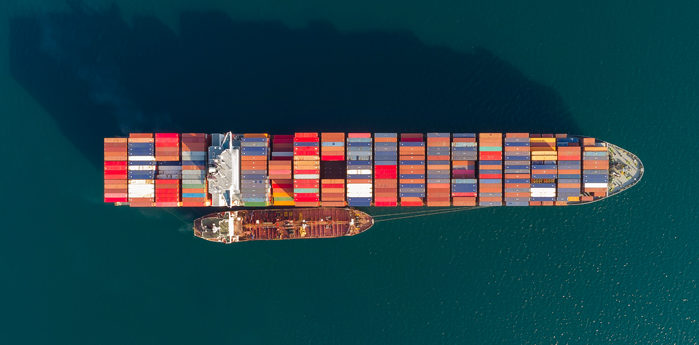As of 1st January 2019, amendments to the bunker delivery note have entered into force, relating to the supply of marine fuel oil to ships, which have fitted alternative mechanisms to comply with the IMO’s 2020 sulphur cap. Other amendments that entered into force this year include the IMSBC Code 2017 amendment and the amendments to designate North Sea and Baltic Sea as ECAs, while the data collection on fuel oil consumption also begins.
Bunker delivery note
Bunker delivery note amendments enter into force only a year before the limit for sulphur in fuel oil will be reduced to 0.50% m/m outside emission control areas (ECAs), from 3.5% currently. In ECAs, the limit will remain at 0.10% m/m.
The amendments to Appendix V of MARPOL Annex VI are intended to address situations where the fuel oil supplied does not meet low sulphur requirements, but has been supplied to a ship which is using an alternative compliance method permitted under regulation 4 of MARPOL Annex VI (“Equivalents”) to reduce the sulphur oxide emissions of the ship in order to comply with MARPOL requirements.
An equivalent means may be abatement technology such as a scrubber, if accepted by the flag State of a ship as an alternative means to meet the sulphur limit requirement.
The bunker delivery note shall include a declaration signed and certified by the fuel oil supplier’s representative that the fuel oil supplied is in conformity with regulation 18.3 of MARPOL Annex VI and that the sulphur content of the fuel oil supplied does not exceed:
- the limit outside ECAS (currently 3.50%, falling to 0.50% from 1 January 2020) under regulation 14.1;
- the limit in emission control areas (0.10% m/m) under regulation 14.4; or
- the purchaser’s specified limit value, on the basis of the purchaser’s notification that the fuel oil is intended to be used:-in combination with an equivalent means of compliance; or
-is subject to a relevant exemption for a ship to conduct trials for sulphur oxides emission reduction and control technology research.
The 0.10% m/m limit applies in the four established ECAS:
- the Baltic Sea area;
- the North Sea area;
- the North American area (covering designated coastal areas off the United States and Canada); and
- the US Caribbean Sea area (around Puerto Rico and the United States Virgin Islands).
Additionally, in October 2018, IMO’s MEPC adopted a further amendment to MARPOL Annex VI, which will prohibit the carriage of non-compliant fuel oil for combustion purposes for propulsion or operation onboard a ship – unless the ship has an equivalent compliance method. This amendment is expected to enter into force on 1 March 2020, and will (among other things) amend the form of the International Air Pollution Prevention Certificate (IAPP Certificate), so that it specifies that, for a ship without an approved equivalent arrangement, the sulphur content of fuel oil carried for use onboard the ship shall not exceed 0.50% m/m as documented by bunker delivery note.
North Sea and the Baltic Sea nitrogen oxides (NOx) ECAs
Also on 1 January 2019, amendments to MARPOL Annex VI to designate the North Sea and the Baltic Sea as emission control areas (ECAs) for nitrogen oxides (NOX) entered into force.
Both ECAs will take effect on 1 January 2021, and will result in considerably lower emissions of NOx from international shipping in those sea areas.
In NOx emission control areas, ships are subject to so-called “Tier III” controls to limit NOx emissions.
Solid bulk cargoes (IMSBC) code 2017 amendment
The 2017 set of amendments (04-17) to the International Maritime Solid Bulk Cargoes Code (IMSBC Code) cargoes entered into force on 1 January 2019. The amendments include requirements for the shipper to declare whether or not a solid bulk cargo, other than grain, is harmful to the marine environment.
Other amendments include updated carriage requirements for a number of specific cargoes and amendments to highlighting the responsibility of the shipper for ensuring that a test to determine the transportable moisture limit (TML) of a solid bulk cargo is conducted.
Data collection on fuel oil consumption begins
From 1 January 2019, ships of 5,000 gross tonnage and above need to start collecting data on their fuel-oil consumption, under the mandatory data collection reporting requirements which entered into force in March 2018.
The MARPOL Annex VI regulation on Collection and reporting of ship fuel oil consumption data requires ships of 5,000 gross tonnage and above to collect consumption data for each type of fuel oil they use, as well as other, additional, specified data including proxies for transport work.
The aggregated data is reported to the flag State for each calendar year and the flag State, having determined that the data has been reported in accordance with the requirements, issues a Statement of Compliance to the ship. Flag States are required to subsequently transfer this data to an IMO Ship Fuel Oil Consumption Database. IMO is required to produce an annual report to the MEPC, summarizing the data collected.
The data collection system is one of the measures taken which will support the implementation of IMO’s Initial IMO Strategy on Reduction of GHG Emissions from Ships, adopted in 2018.






























































